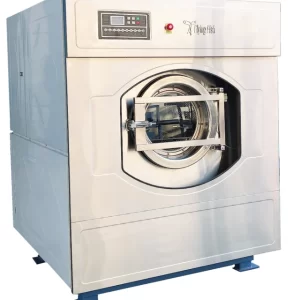How do I fix rotten egg smell in washing machine?
Introduction
A rotten egg smell emanating from your washing machine can be off-putting and frustrating. This unpleasant odor is often caused by bacteria or mold growth within the machine or in the water supply. Fortunately, there are effective solutions to eliminate the rotten egg smell and restore a fresh and clean scent to your washing machine. In this guide, we will explore various methods to tackle this issue, including cleaning the machine, addressing the water supply, and preventing future odor problems.

How do I fix rotten egg smell in washing machine?
Cleaning the Machine
1.1. Overview
Cleaning your washing machine regularly is essential for preventing and eliminating unpleasant odors. This involves removing residue, bacteria, and mold that can accumulate over time and cause the rotten egg smell.
1.2. Solution
To clean your washing machine and eliminate the rotten egg smell, follow these steps:
Empty the machine: Remove any clothes or items from the washing machine.
Wipe down the drum: Use a clean cloth or sponge dampened with a mixture of equal parts water and vinegar to wipe down the interior drum of the machine. Vinegar is effective at killing bacteria and eliminating odors.
Clean the detergent dispenser: Remove the detergent dispenser tray (if applicable) and wash it with warm soapy water. Use an old toothbrush or a small brush to scrub away any residue or buildup.
Run a cleaning cycle: If your washing machine has a self-cleaning or maintenance cycle, follow the manufacturer’s instructions to activate it. This cycle typically involves running the machine without any clothes, using hot water, and adding a cup of distilled white vinegar to the drum.
Use a washing machine cleaner: If your machine does not have a self-cleaning cycle, consider using a commercial washing machine cleaner. Follow the instructions on the cleaner’s packaging to ensure safe and effective use.
Clean the rubber door seal: Gently wipe down the rubber door seal with a mixture of equal parts water and vinegar. Pay special attention to any areas with visible mold or mildew. Use a toothbrush or small brush to reach into crevices and remove buildup.
Run an additional rinse cycle: After completing the cleaning steps, run an additional rinse cycle using hot water to flush out any remaining vinegar or cleaner residue.
Keep the door open: When the machine is not in use, leave the door open to allow the drum to dry completely. This helps prevent the growth of bacteria and mold.
Addressing the Water Supply
2.1. Overview
Sometimes, the rotten egg smell in the washing machine can be caused by sulfur in the water supply. If this is the case, addressing the water source is necessary to eliminate the odor.
2.2. Solution
To address the water supply and combat the rotten egg smell, consider the following steps:
Test the water supply: Contact your local water authority or have a water testing company analyze a sample of your tap water for sulfur compounds. This will confirm if the water supply is the source of the smell.
Install a water filter: If the tests confirm sulfur in the water supply, consider installing a whole-house water filtration system or a point-of-use filter specifically designed to remove sulfur compounds. Consult a professional plumber to determine the best option for your situation.
Use a water softener: In some cases, high mineral content in the water can contribute to the rotten egg smell. Installing a water softener can help reduce mineral buildup and eliminate odors.
Use a washing machine deodorizer: If addressing the water supply is not feasible or does not completely eliminate the smell, consider using a washing machine deodorizer specifically designed to neutralize odors in the machine. Follow the instructions on the deodorizer’s packaging for effective use.
Preventing Future Odor Problems
3.1. Overview
Taking preventive measures can help ensure that the rotten egg smell does not return in your washing machine. Implementing proper maintenance routines and cleanliness practices will minimize the chances of odor recurrence.
3.2. Solution
To prevent future odor problems in your washing machine, follow these preventive measures:
Regular cleaning: Clean your washing machine at least once every three months or as recommended by the manufacturer. This will prevent the buildup of bacteria, mold, and residue that can cause unpleasant odors.
Proper detergent use: Use the appropriate amount of high-quality detergent for your load size. Using too much detergent can leave behind residue that contributes to odor problems.
Leave the door open: After completing a wash cycle, leave the washing machine door open to allow air circulation and ensure thorough drying. This helps prevent the growth of bacteria and mold.
Remove wet clothes promptly: Promptly remove clothes from the washing machine after each cycle to prevent moisture from lingering and creating a breeding ground for bacteria.
Clean the detergent dispenser tray: Regularly remove and clean the detergent dispenser tray to prevent residue buildup. Refer to the manufacturer’s instructions for safe removal and cleaning.
Conclusion
Eliminating the rotten egg smell in your washing machine requires a multi-step approach that involves cleaning the machine, addressing the water supply, and implementing preventive measures. Regularly cleaning and maintaining your washing machine will prevent the buildup of bacteria and mold, while addressing the water supply can eliminate sulfur-related odors. By following these solutions and incorporating preventive practices into your routine, you can ensure a fresh and pleasant-smelling washing machine.

